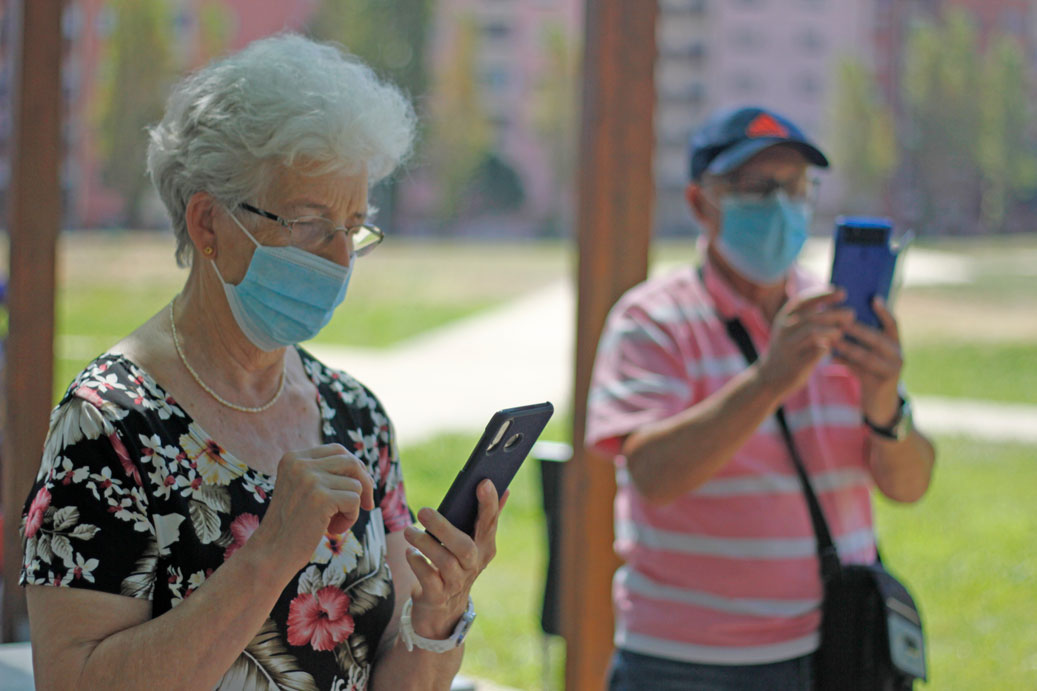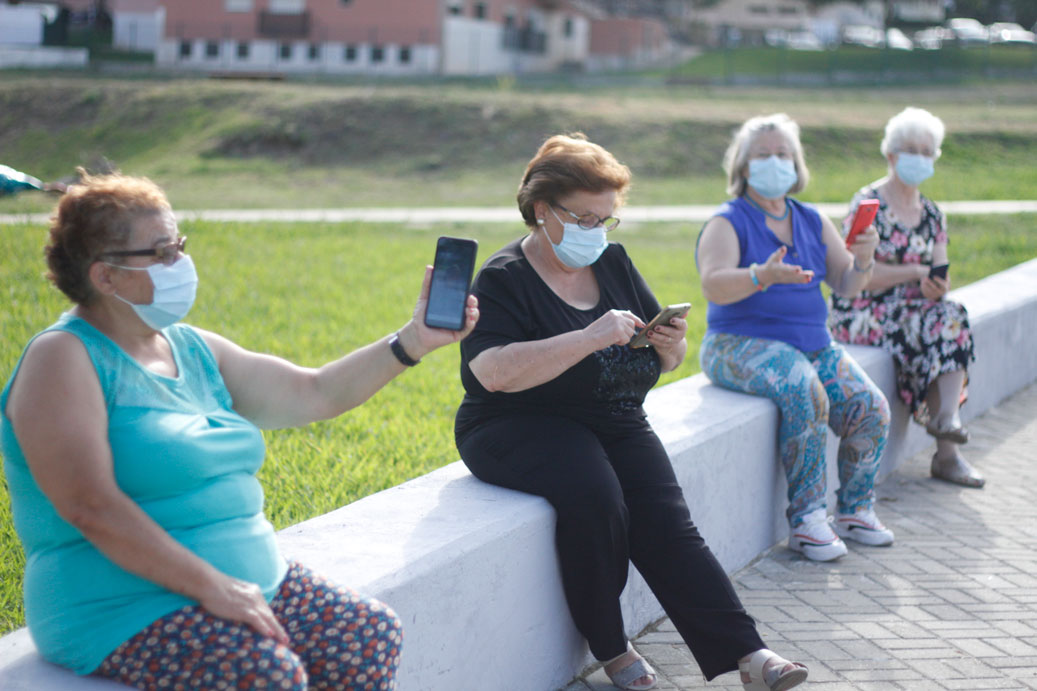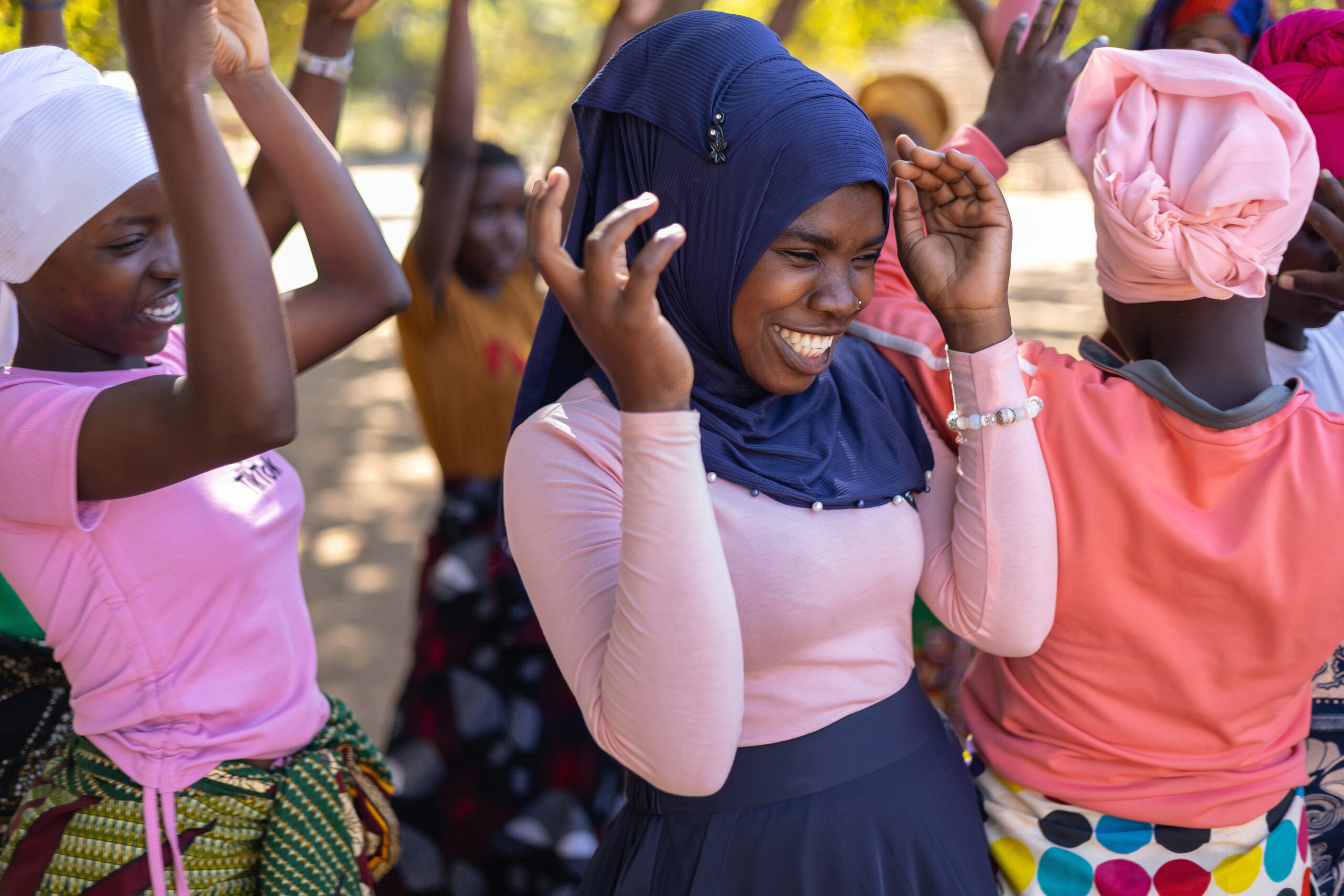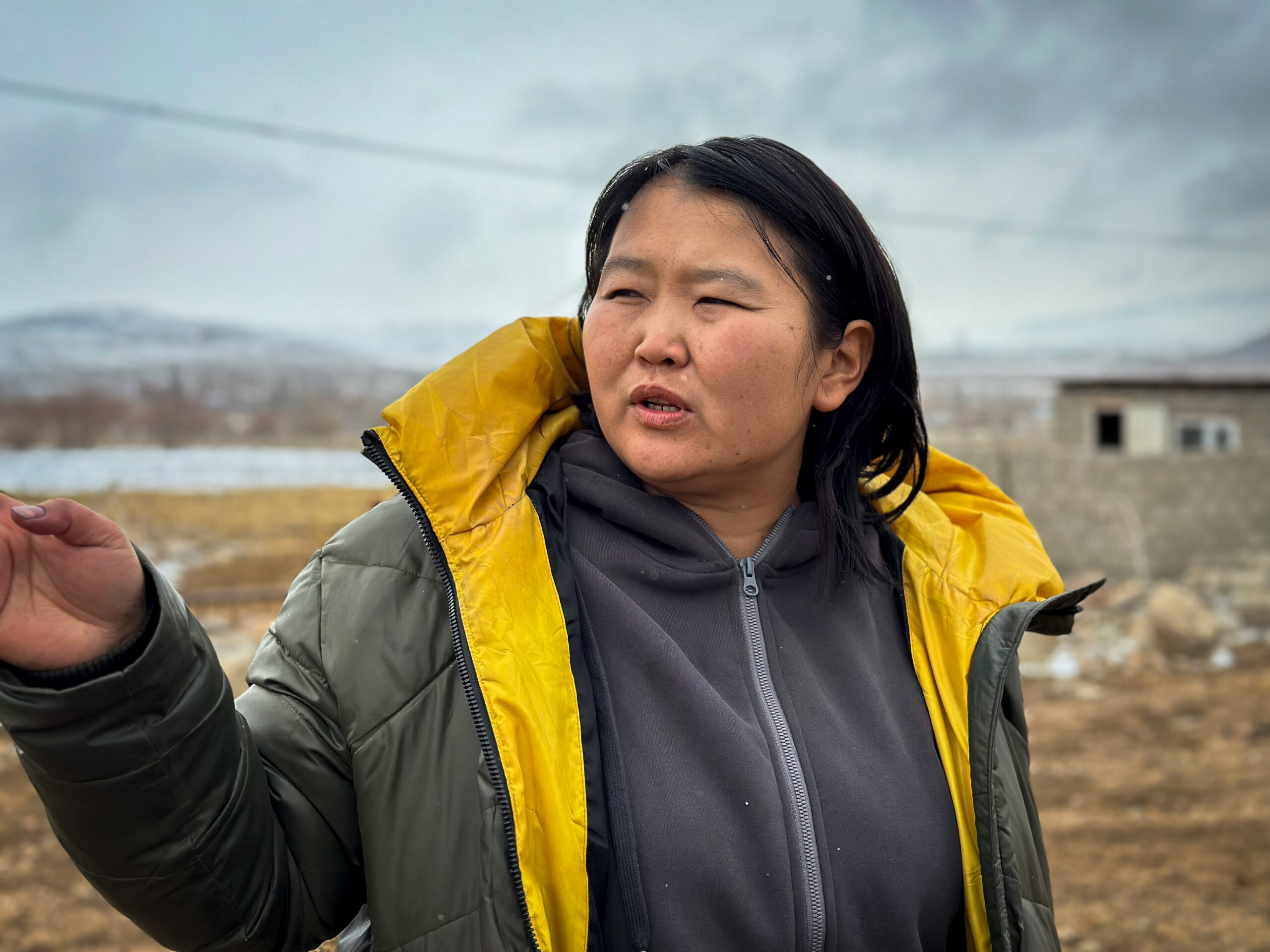Around the world, Coronavirus and the requirement to social distance has resulted in an unprecedented number of people becoming isolated from others. Due to their vulnerability to the virus, senior citizens are some of the worst affected.
With many lacking mobile phones, laptops and tablets, or the knowledge of how to operate them, their isolation has been further exacerbated. But a new programme led by Aga Khan Foundation Portugal and with support from the Johnson & Johnson Foundation is seeking to change this by teaching digital skills to the elderly and getting them connected to family and friends again.
As part of the ‘Capacity-building of Senior Caregivers in Portugal’ programme, AKF Portugal has been working with seniors in Lisbon to help them improve their digital literacy, with the support of their caregivers. As the name of the programme suggests, it is largely focused on building the resilience and supporting the work of caregivers. This is being done in several ways, including developing user-friendly training materials that tap into technical knowledge, and helping caregivers access support and information through communities of practice.

Currently, over 65 year olds represent a significant proportion of Portugal’s population (around 21%). As this demographic has grown, state-run care services have been unable to keep up with demand. Professional carers face a major challenge adapting to the growing diversity of seniors – their interests, needs and talents – with informal caregiving by family or friends being promoted as one way of reducing the burden on the state. Caregiving however is demanding, stressful, often creates adverse health consequences for the carer, and can be a huge strain on family resources. It is therefore vital that the caregivers, both formal and informal, are supported to do their important work.
One way to support carers is to enable the seniors themselves to become as independent as possible. To help achieve this, AKF’s team in Lisbon developed a pilot digital literacy programme designed to combat the isolating effects of lockdown. With Portugal still battling COVID-19 and social distancing here to stay for the foreseeable future, the programme aims to help seniors learn some basic tech skills to ensure they are neither excluded from accessing important information, nor disconnected from their families and friends.

As part of the trial, a selection of tablets were purchased for the test group, and alongside local partners, such as Seniors Universities, a series of one-to-one training sessions were developed. These focused on how to use a mobile or tablet, supporting the seniors to send messages, make calls, or take and share pictures. Introductory sessions to social networks like WhatsApp and Facebook were also developed.
In September this year, during a momentary reprieve in lockdown measures, AKF brought together ten seniors from the Municipality of Sintra for a socially distanced training session. This provided a much-needed break from the loneliness and stresses of the last few months and allowed the seniors to familiarise themselves with some of the new technology available for keeping in touch with family and friends.
It is hoped that the initiative will not only have the desired effect of reducing the debilitating loneliness caused by isolation during lockdown, but that it can also showcase to other senior support organisations new ways to deliver their services. Programmes like this work to support one of AKF’s core principles: enhancing self-reliance. Using technology to access vital information, entertainment, or stay in touch with loved ones is critical for everyone during the pandemic, even more so for those that are at risk of long-term isolation.
The ‘Capacity-Building of Senior Caregivers in Portugal’ programme is a 450,000 EUR programme, supported by the Johnson and Johnson Foundation. It aims to improve the quality of the community-based care eco-system for seniors in Portugal.




